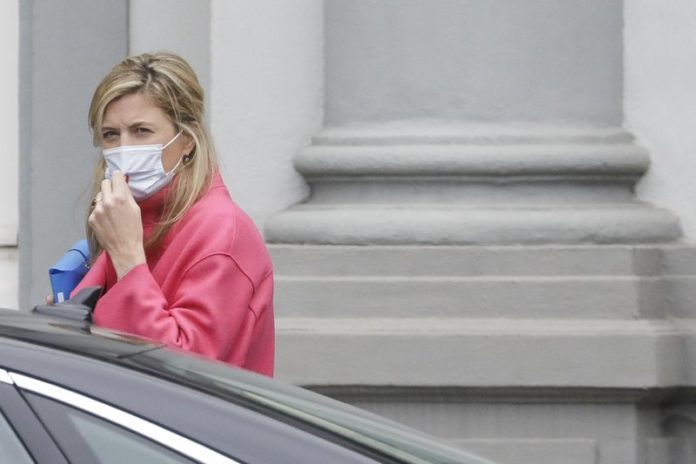Belgium's core cabinet of ministers approved the preliminary draft of the so-called pandemic law on Friday, Prime Minister Alexander De Croo and Interior Minister Annelies Verlinden announced.
The draft will now be submitted to the Chamber of Representatives for consultation, as De Croo and Verlinden state that they want to involve the parliament in the decision-making process as soon as possible.
"Fighting a pandemic often requires far-reaching measures," De Croo said in a press release, stressing that the democratic basis for them has to be as strong as possible.
"That is why the federal government is taking a relatively unprecedented step and is reaching out to Parliament to further shape this pandemic law together," he said, adding that the government is "looking forward to a constructive debate" to reach the best possible agreements.
De ministerraad heeft zonet eerste ontwerp pandemiewet goedgekeurd.
We reiken nu de hand aan het Parlement om dit samen verder vorm te geven. Ik kijk uit naar constructief debat. Krachten bundelen leidt tot beste resultaat. Bijzondere dank @AnneliesVl voor alle inspanningen! — Alexander De Croo (@alexanderdecroo) February 26, 2021
Verlinden stressed that, given the ongoing nature of the health crisis, she wants to "increase the transparency of the crisis management for this and any future pandemics" to the Parliament.
"It is unique but valuable that the parliamentary debate on the pandemic bill can start now," she said, adding that this allows them to take note of MPs' reflections and suggestions.
Even though the Council of State has ruled on several occasions that Belgium's current laws are a sufficient legal basis for the Ministerial Decrees detailing the country's coronavirus measures, a growing number of voices are being raised against that view.
Therefore, Verlinden proposed to draw up a specific law, as a permanent legal basis, for taking this kind of restrictive measures during a pandemic.
"In a democratic constitutional state, parliamentary control plays an essential role, and that is certainly true in crisis situations as well," Verlinden said.
Epidemic emergency
The pandemic law applies to a so-called "epidemic emergency," which has to be declared by the King for a maximum duration of three months.
This is done based on objective scientific data, after advice from the Federal Health Minister, and after consultation in the Council of Ministers and with the Regions.
This emergency situation can then be extended for up to three months at a time.
If and when a pandemic is declared, the Interior Minister will take measures that are "necessary, appropriate, proportionate and limited in time" to prevent or limit the effect of it - after consultation in the Council of Ministers and, if appropriate, in the Consultative Committee.
Governors and mayors will also be allowed to take additional measures, if the local conditions require it, and according to the Interior Minister's instructions.
Related News
- Belgian state sued for ‘harmful’ coronavirus management
- Pandemic law: ‘Judges will start cancelling fines’ warns expert
- Covid-19: Senior lawyers warn ad hoc measures lead to ‘erosion of the rule of law’
The possible measures that can be taken are similar to the ones currently in force, such as restrictions on entering or leaving Belgian territory, the closure of certain establishments, a ban gathering, and the restriction on movement, among others.
If the rules are broken, the penalties provided for are the same as those which may be imposed today for infringements of the measures taken to prevent the spread of the coronavirus.
Additionally, the "essential role" of Parliamentary control is ensured by the fact that the Royal Decree declaring the pandemic has to be enacted by law within at most five days, as well as monthly reports by the Interior Minister on the continuity of the measures to the House.
Other ministers will also have to report to the Chamber on a monthly basis, each for the aspects within their own competence.
If adopted, the pandemic law can be used for the Covid-19 pandemic, as well as for any future health emergencies caused by an infectious disease, according to Verlinden. It complements the already existing legal basis and takes into account the legislation on the protection of personal data.
Maïthé Chini
The Brussels Times

